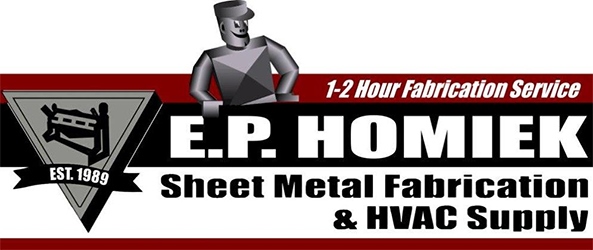Author Archives: admin
The Development of ECM Motors for Residential HVAC Systems by EP Homiek
Posted on March 21, 2025 by admin in Blog_PostsElectronically Commutated Motors (ECM), also known as brushless DC motors, have gained popularity in residential heating, ventilation, and air conditioning (HVAC) systems due to their efficiency, performance, and adaptability. Developed in response to the need for energy-efficient and cost-effective solutions, ECM motors represent a significant advancement over traditional induction motors. Reasons for Development Energy Efficiency: […]
Comments Off on The Development of ECM Motors for Residential HVAC Systems by EP HomiekContinue Reading...
Understanding and Taking Static Pressure Readings Can Help Transform Your Business
Posted on February 19, 2025 by admin in Blog_PostsAirflow in residential HVAC systems is o5en overlooked and rarely measured, yet it is the lifeblood of every system. The easiest way to determine airflow in an HVAC system is through static pressure measurement, which can be completed in just a few minutes. Static pressure (or total static) in residential HVAC systems should be 0.5 […]
Comments Off on Understanding and Taking Static Pressure Readings Can Help Transform Your BusinessContinue Reading...
Understanding Cracked Heat Exchangers in Residential Furnaces: Causes and Warning Signs
Posted on February 3, 2025 by admin in Blog_PostsA cracked heat exchanger in a residential furnace is a serious issue that requires immediate attention. Understanding both the causes and warning signs can help homeowners maintain their furnaces and identify problems early. Common Causes Age and normal wear are primary factors, with most heat exchangers lasting 15-20 years before developing issues. Poor maintenance can […]
Comments Off on Understanding Cracked Heat Exchangers in Residential Furnaces: Causes and Warning SignsContinue Reading...
The Importance of Controlling Humidity in Our Homes Year-Round
Posted on December 31, 2024 by admin in Blog_PostsMaintaining proper humidity levels in our homes is crucial for both comfort and health, particularly as the seasons change from summer to winter. The ideal indoor humidity level is typically between 30% and 50%RH. When humidity levels fall outside this range, it can lead to a variety of issues, including discomfort, health problems, and damage […]
Comments Off on The Importance of Controlling Humidity in Our Homes Year-RoundContinue Reading...
Comparing R-32 benefits over traditional refrigerants
Posted on November 6, 2024 by admin in Blog_PostsUsing R-32 refrigerant offers several benefits over traditional refrigerants like R-410A and R-22. Here are some of the key advantages: Lower Global Warming Potential (GWP): R-32 has a significantly lower GWP (approximately 675) compared to R-410A (around 2088). This makes R-32 a more environmentally friendly option, helping to reduce the overall impact on climate change. […]
Comments Off on Comparing R-32 benefits over traditional refrigerantsContinue Reading...
What do the new refrigerant changes mean for HVAC contractors in the North East
Posted on October 11, 2024 by admin in Blog_PostsRecent changes in refrigerant regulations, particularly the phase-out of high-global warming potential (GWP) refrigerants, have significant implications for HVAC contractors in the Northeast. Here’s what these changes mean: Transition to Low-GWP Refrigerants: Contractors will need to adapt to using new refrigerants with lower GWP, such as R-410A alternatives (e.g., R-32 or R-454B). This transition may […]
Comments Off on What do the new refrigerant changes mean for HVAC contractors in the North EastContinue Reading...
“Inverter vs. Non-Inverter HVAC Systems: A Comprehensive Comparison”
Posted on September 23, 2024 by admin in Blog_PostsInverter technology has changed the residential HVAC market for the better in so many ways. The key differences between inverter and non-inverter technology in HVAC systems are as follows Compressor Operation Inverter Technology: Inverter systems use variable-speed compressors that can adjust their speed according to the cooling or heating demand. This means that the compressor […]
Comments Off on “Inverter vs. Non-Inverter HVAC Systems: A Comprehensive Comparison”Continue Reading...
Mastering Residential HVAC Sales: Essential Tips from the Industry’s Top Sellers
Posted on September 4, 2024 by admin in Blog_PostsHere are some top residential HVAC sales tips from professionals to boost your business in today’s economy. Professional online presence: Having a professional looking website that is attractive, easy to navigate and shows all of your services is an absolute must. Potential customers will look to find your company online to help make purchasing decisions. […]
Comments Off on Mastering Residential HVAC Sales: Essential Tips from the Industry’s Top SellersContinue Reading...
NJ and Eight Other States Incentivize Heat Pumps Through Rebates, Financing and Tax Credits.
Posted on July 29, 2024 by admin in Blog_PostsNew Jersey’s Clean Energy Program provides financial incentives for homeowners who install energy-efficient heating and cooling systems, including heat pumps. These incentives help to offset the initial installation costs, making it more affordable for residents to make these energy saving upgrades. Several of NJ’s electric and gas utilities participate in the program and offer rebates. […]
Comments Off on NJ and Eight Other States Incentivize Heat Pumps Through Rebates, Financing and Tax Credits.Continue Reading...
